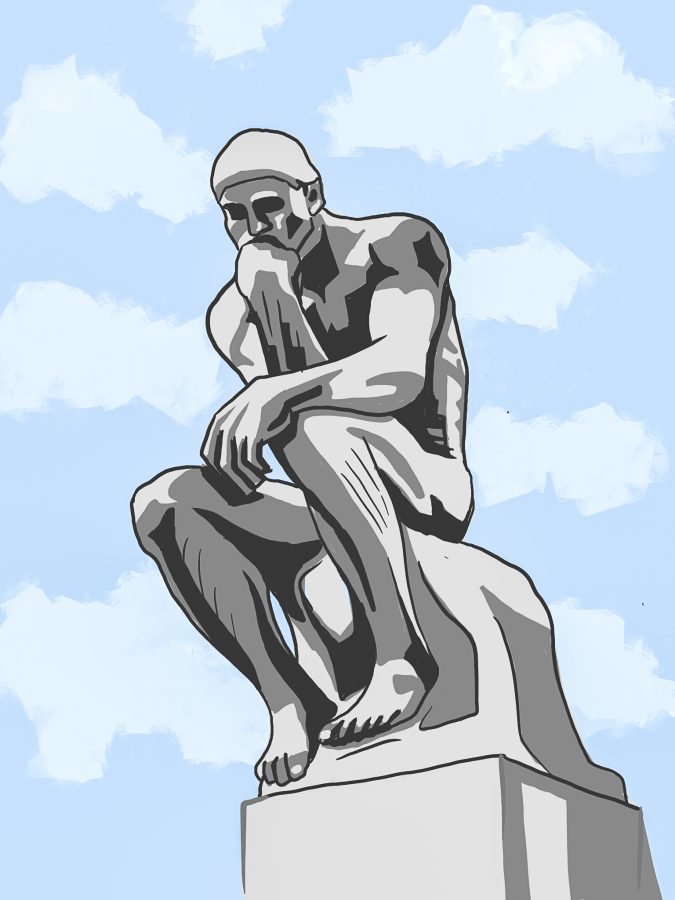Life is often overwhelming. It doesn’t always lead us to exactly where we want to be. Growing up with a relatively simple lifestyle until high school, undergraduate life for me was both exhilarating and overwhelming. Choices I had to make before high school were simple; they didn’t feel like they were going to have a major impact on my life. In college, I often felt exposed to the overbearing weight of my thoughts.
Every single choice I had to make felt like it would have a lasting impact both in my professional and personal life. The major ambiguity was on how to plan for a future when I wasn’t even sure which passion to follow. My major was engineering—that was a logical career path—but I was also passionate about many things such as writing, history, international affairs et cetera. I had to make a choice, and it felt like I wanted a career in every field.
Our decisions and indecisions decide our future. Sometimes, we can’t decide exactly what we want. It’s like the experiences of the main character from “Everything, Everywhere, All At Once.” Embracing change and uncertainty can be difficult, but finding meaning and beauty in the chaos and unpredictability of life is fulfilling.
There are many philosophical concepts to ponder upon in search of this fulfillment. One such concept is “Anekantavada.” This is an idea from Jain philosophy that says reality is multitude. We can try to explain reality, but what we explain is only what we have perceived—there is still so much left. For instance, if five blind people touched an elephant, everyone would describe it only according to the part they touched. One who touched its feet might describe it as like a log of wood; one who touched the tail might describe it as like a rope, and so on [1]. Every one of these perceptions is true, but individually they are not a complete explanation.
It’s a similar situation when we question ourselves about our future, our interests or our preferences; we are many in one. It’s hard to decide what we want to be, whom we like or whom we dislike. This is the complexity we face when deciding “we don’t know enough.” In the realm of endless possibilities, we fail to choose…or fear to choose. Sometimes, we might get lucky and end up happy with our judgements. But if we are not, then that’s okay too. We don’t have to beat ourselves up for the choices we make.
I feel that life is all about permutations and combinations. There is a Japanese art called Kinsugi; the literal meaning of it is “to join with gold.” It is the art of repairing broken pottery. If a bowl or a pot is broken, rather than discarding the pieces, the fragments are picked up and reassembled with luxuriant gold powder. A metaphor for embracing your flaws and imperfection. The imperfections are highlighted rather than hidden [2].
Navigating life as a young adult is tough. As a student, you may encounter setbacks or failures. Instead of trying to hide them, we should embrace them and learn from them. It’s important to be mindful that it requires patience and resilience to repair broken pottery; similarly, with ourselves. We have our own strengths, weaknesses and experiences that make us who we are. Instead of comparing oneself to others, appreciate your own uniqueness and use it to your advantage.
Many people know for sure what they what. Often, they are passionate about just a few things, which they follow and become successful. Some people may struggle to know what they what. They are good at many things, but they may not be sure which one to pursue as a career or dedicate their time and energy to.
For those who struggle to know what they want, it’s important to explore your interests and passions, and identify what brings you joy and fulfillment. Any one of those interests can be a good choice. The experiences we encounter because of those choices make us better people. It is okay to make mistakes, try new things and change directions along the way.
Citations:
[2] https://www.bbc.com/travel/article/20210107-kintsugi-japans-ancient-art-of-embracing-imperfection

